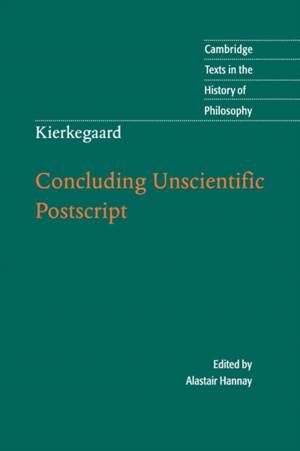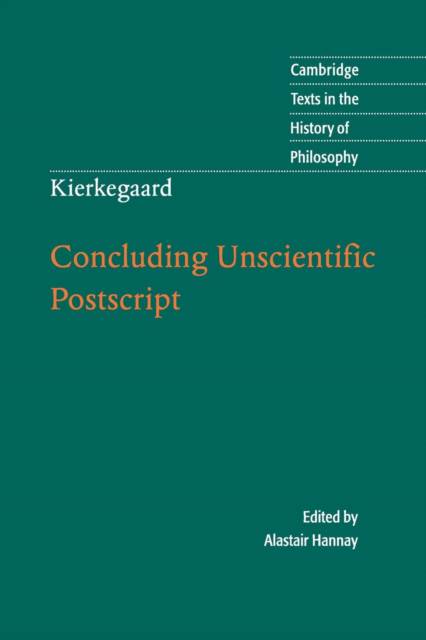
- Afhalen na 1 uur in een winkel met voorraad
- Gratis thuislevering in België vanaf € 30
- Ruim aanbod met 7 miljoen producten
- Afhalen na 1 uur in een winkel met voorraad
- Gratis thuislevering in België vanaf € 30
- Ruim aanbod met 7 miljoen producten
Zoeken
Omschrijving
Kierkegaard's Concluding Unscientific Postscript is a classic of existential literature. It concludes the first and richest phase of Kierkegaard's pseudonymous authorship and is the text that philosophers look to first when attempting to define Kierkegaard's own philosophy. Familiar Kierkegaardian themes are introduced in the work, including truth as subjectivity, indirect communication, the leap, and the impossibility of forming a philosophical system for human existence. The Postscript sums up the aims of the preceding pseudonymous works and opens the way to the next part of Kierkegaard's increasingly tempestuous life: it can thus be seen as a cornerstone of his philosophical thought. This volume offers the work in a new and accessible translation by Alastair Hannay, together with an introduction that sets the work in its philosophical and historical contexts.
Specificaties
Betrokkenen
- Auteur(s):
- Vertaler(s):
- Uitgeverij:
Inhoud
- Aantal bladzijden:
- 584
- Taal:
- Engels
- Reeks:
Eigenschappen
- Productcode (EAN):
- 9780521709101
- Verschijningsdatum:
- 28/05/2009
- Uitvoering:
- Paperback
- Formaat:
- Trade paperback (VS)
- Afmetingen:
- 152 mm x 229 mm
- Gewicht:
- 839 g

Alleen bij Standaard Boekhandel
+ 152 punten op je klantenkaart van Standaard Boekhandel
Beoordelingen
We publiceren alleen reviews die voldoen aan de voorwaarden voor reviews. Bekijk onze voorwaarden voor reviews.








